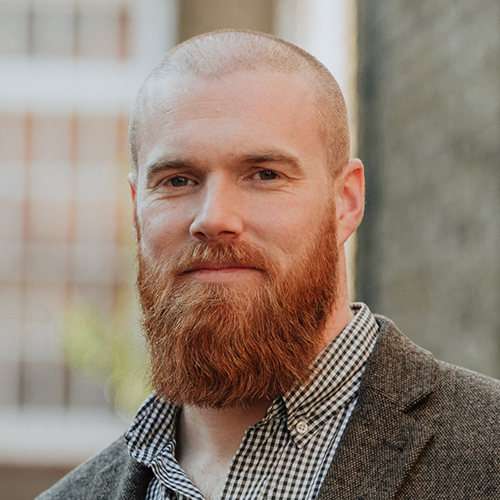There are the obvious ways of wasting your life. Simply surrender to the downward, dissolving pull of entropy and despair. Our lives are unbelievably short to begin with, but despite that, what time we have is easily squandered in reckless living and self-destructive habits.
Take, for example, the tragic case of the man who came into my wife’s GP surgery recently. He drinks around 38 units of alcohol a day (the NHS recommends no more than 14 a week). In his mind-altered oblivion he didn’t really know what he was doing as he soiled himself and the room he was in, leaving a mess that nobody wanted to clean up. How did he end up like that? Whatever the reasons for his sorry situation, none of us would want to trade places. None of us would think, ‘That’s where I want to be when I’m older’. It’s a grisly and sad waste of life whichever way you cut it.
But wasting your life may not be so obvious; it can be a subtle and insidious thing also. It’s much harder and less obvious to see the catastrophic waste that may lie behind the scenes when a person appears superficially successful. The trappings of success – such as wealth, status, and achievements – are all too often little more than perfume on a corpse. Look more closely and you may quickly discover a litany of woe: failed relationships, estranged children, broken promises, anger, hurt, and betrayal. The terrifying thing is that this can happen to any of us.
Some years ago, I was struck afresh by this point listening to Matt Damon being interviewed by Graham Norton. They were reflecting on the Oscar that Damon had won with Ben Affleck for their screenplay for Good Will Hunting. Damon was only 27 when he won, and so Norton asked: ‘That night must have sent you into a tailspin. Did you go crazy that night?’ Damon’s response is poignant:
I remember very clearly looking at that award and thinking very, very clearly… I literally looked at it, I was alone with it, and I said to myself: ‘Thank God I didn’t f* anybody over for this.’ And I suddenly had this kind of thing wash over me where I thought, ‘Imagine chasing that and not getting it, and getting it finally in your eighties or your nineties with all of life behind you, and realising what an unbelievable waste of your [life]’ Because it can’t, you know what I mean… It can’t fill you up. If that’s a hole that you have, that won’t fill it. Right? And I felt so blessed to have that awareness at 27. Because I wouldn’t have known it unless I knew it. And I literally… my heart broke for a second. It’s like, I imagined another one of me, you know, an old man kind of going, ‘Oh my God, where did my life go? What have I done?’ And then it’s over.
It is very rare to experience a moment of such clarity. Most of the time we simply move forward somewhat mindlessly, chasing the same goals as everyone else, running at the same pace, aiming for the same rough notion of The Good Life.
What if you could gain some kind of perspective on what really matters? Where would it come from?
The most natural way to answer this is to examine life from the inside-out perspective. The essence of it is to ask yourself, ‘What is happiness and how do I get there? What would fulfil my life?’ That is to say, I’m asking the question from the perspective of my felt needs. I see myself at the centre of things, and compose the story of my life from the inside out. This is what will please me, make me happy, fulfil my dreams.
This me-centred lust for satisfaction is powerful, and it can energise you to spend your life chasing goals and achievements which may, or more likely, may not deliver what they promise. I suppose Damon’s point was that he was freed from this inside-out view. Achieving his dreams so early in life more-or-less snapped him out of it, provoking him to think more deeply about what matters in life.
You can also look at things in the opposite way. You can look at the question from the outside in. You can take a much more wide-angle view on things asking something like, ‘What do people around me need? ‘or even, ‘What does the world need?’ It’s the difference between Google Streetview (the me-centred approach) and Google Earth, in which I start from a much higher perspective and see my life in its true context and consider how I might live a more meaningful life. You get a better perspective.
But here’s the catch. You can only go as high as your worldview will allow. Even if we manage to break out of an inside-out way of thinking and experience some kind of illumination, even if we begin to see our lives in some bigger perspective, that framework will always be limited by the way we answer the most basic questions about life: What are we here for? What ultimately matters? What is the story we are a part of? If we have inadequate answers, then our sense of purpose will be inadequate also.
I believe this is why so many experience a sense of pointlessness and dismay. It may hit you when you’re young, when you’re in mid-life, or when you’re dying, but it comes. If you think hard enough, it comes. Why? Because for many who live in a materialistic world, emptied of its enchantment, void of spirituality, the crushing sense of futility hits at some point as they see the pointlessness of life that ends too quickly in final and irreversible death.
This human need for meaning is one of the reasons almost every generation that has gone before us has tried to search out the divine. Of course, our need for meaning does not prove that God is there. But it is one clue along the way, and it is hard to account for our universal sense of spiritual and existential longing if it was not put there by God.
This certainly resonates with me. I have found so much satisfaction and purpose in my faith. It seems to me that the ultimate perspective on what really matters can only be provided by knowing God’s purposes. To be a Christian is to place yourself in a story that has been playing out for millennia, and which orientates you meaningfully in every aspect of normal life. The daily struggle to wrest myself free from a purely selfish view of things is never easy, and I frequently lose sight of any bigger picture other than the immediate needs I face. But ultimately, knowing God gives me a much higher sense of perspective than I could ever arrive at purely on my own.



